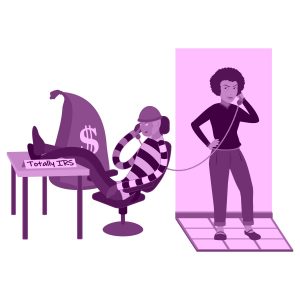 Filing your taxes is already stressful enough, but having scammers impersonate IRS officials skews the playing field even more. Time to brush up on your 1040 Defense.
Filing your taxes is already stressful enough, but having scammers impersonate IRS officials skews the playing field even more. Time to brush up on your 1040 Defense.
What the IRS WILL do:
- The IRS WILL send official letters called “notices” BEFORE calling or visiting.
- IRS agents WILL have 2 forms of ID, a pocket commission and a Federal ID card called an HSPD-12. Ask to see both of them.
- The IRS WILL ask for payments to be made ONLY to the United States Treasury. The IRS provides guidelines on how to make payments.
What the IRS will NOT do:
- The IRS will NOT call and demand to be paid immediately without the opportunity for you to appeal. You can view your rights as a taxpayer on the IRS website.
- The IRS will NEVER demand payment in the form of gift cards or re-loadable prepaid cards.
- The IRS will NEVER threaten imminent legal action, such as incarceration, deportation, suspension of drivers, business, or other licenses.
- The IRS does NOT send emails without your express consent. Furthermore, the IRS will NEVER ask you to email sensitive information, such as social security or bank account numbers, which should NEVER be sent via email to anyone. Learn more about reporting phishing and online scams on the IRS website.
Know Who to Contact:
- Contact the Treasury Inspector General for Tax Administration to report a phone scam. Use their “IRS Impersonation Scam Reporting” web page to file a report. You can also call 800-366-4484.
- Report phone scams to the Federal Trade Commission. Use the “FTC Complaint Assistant” on FTC.gov to report a scam. Please add “IRS Telephone Scam” in the notes of the complaint.
- Report an unsolicited email claiming to be from the IRS, or an IRS-related component like the Electronic Federal Tax Payment System, to the IRS at [email protected].
#1040Defense